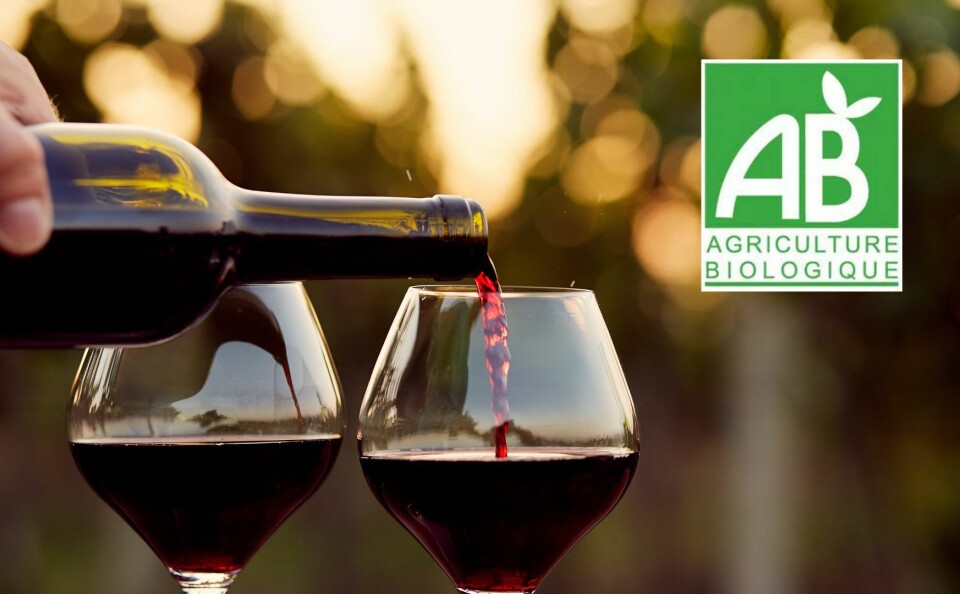-
Learning French: jouer à l’oreille and more musical phrases
Fine-tune your music-themed vocabulary for the fête de la musique on June 21
-
Inside Sir Ridley Scott's Provençal paradise
The acclaimed British film director talks exclusively to The Connexion about his Vaucluse home, the wine he makes there and how French history has inspired his work
-
French wine guide: choosing regional reds
Jonathan Hesford says correct pairing with food is the key to your vin rouge selection
What is the future of organic wine in France and do consumers care?
Vigneron Jonathan Hesford explains the ‘behind-the-scenes’ issues facing vins biologiques producers

Five years ago I wrote a column about the future of organic wine, highlighting a number of market problems coming down the line for organic wine producers.
I highlighted that there were at that time more hectares undergoing conversion to organic certification than there were already in production.
Those vineyards are now producing organic wines, but is there a market for them all?
Organic wine market assumes customers will pay more
In my experience, most consumers don’t really know what organic wine is.
The definition is wine made from grapes grown without the use of inorganic fertilisers or synthetic pesticides. In addition, weed control must be by non-chemical methods.
There are some restrictions on winemaking practices but these do allow the use of many additives, notably sulfites.
The market for organic wine rests on some presumptions about consumers: that they are actively interested in more environmental farming, that they believe synthetic pesticides are dangerous and that organic wine is intrinsically better either in terms of taste or for health reasons.
Finally, that they are willing to pay more for an organic wine.
Read more: Winery in France offers bottle refill scheme to cut carbon footprint
Challenge to Agriculture Biologique (AB) label
The claim that organic wine is the most environmental has been brought into question.
Mainly because it uses a lot more diesel to manage the weeds and to spray non-synthetic pesticides, which need to be applied more frequently.
The Haute Valeur Environnementale (HVE) certification programme has grown rapidly in recent years, challenging the Agriculture Biologique (AB) for consumer attention.
Furthermore, producers of Natural wines and those practising Biodynamics have sought to market themselves as “Better than Organic”.
Bottle shortage hit organic producers hard
The 2022 vintage in Languedoc-Roussillon saw a 25% increase in the surface area eligible to produce organic wine.
In addition, a relatively disease-free growing season meant that yields of organic grapes were better than in the previous three years.
Read more: French vineyard yields: it’s quality versus quantity
However, it has coincided with a fall in the spending power of consumers, a fall in French consumption of wine and a shortage of glass bottles due to Covid and the energy crisis.
The lack of bottles hurts organic wine producers harder because they are much more dependent on direct sales of bottles, as opposed to sales on the bulk market.
It meant that organic producers were left with large volumes of unbottled wine that they had to sell to négociants before harvest.
Less money in bulk selling
Négociants are notoriously tough businesses which generally aim for the lowest prices possible.
The bulk prices of organic wines in France are still around 50% higher than their conventional counterparts but recent figures have shown that the volume of organic wine being sold on contract has fallen, with many reports of reduced or cancelled contracts, particularly in export markets.
Read more: Bordeaux winegrowers demand money to uproot vines
These challenges are probably tougher for Cooperatives who have launched organic wines as part of their range.
It has been reported that often it is younger, newer cooperative vignerons who have taken the organic route and they are the ones with the least financial resources to handle instability in the market.
There are reports that cooperatives will be forced to sell bulk organic wine without the AB label in order to shift the wine without damaging the premium price point.
That raises an interesting question of whether AB can retain a premium price by effectively declassifying large volumes of organic wine to restrict the market.
It can only work in the short term.
More producers trying to sell to same local customers
The future for organic wine producers doesn’t look as attractive as it did 10 years ago.
The massive increase in supply being the main worry but also the presence of a lot of bulk AB wine on the négociant market threatens the artisanal image of the category.
Diesel prices are not likely to fall and the increased use of fossil fuels to conduct organic farming is out-of-step with combating climate change.
Inflation means that labour costs will go up, disproportionately hitting organic producers.
In my region there has been a big increase in new, small wine estates, nearly all of whom have chosen to get AB certification.
It has led to a lot more competition in the local market as they are all trying to sell to the same customer base, hitting the sales volumes of established producers.
If their financial plans were based on selling wine at the prices seen in the past, that might be problematic.
If consumers don’t see or taste the difference between organic and conventional wines, will they be prepared to continue paying a premium?
Related articles
Why France’s alcohol-free cocktail boom is ‘not just a trend’
Bar stops draught beer due to soaring electricity bills in west France
Champagne bottles in France may soon be wrapped in eco-friendly paper
























